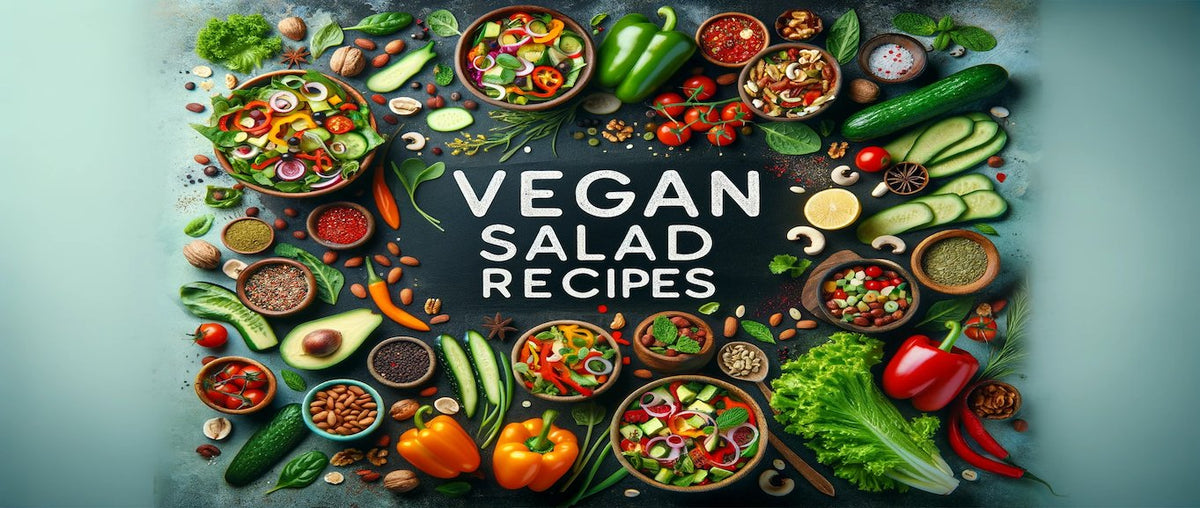Healthy Work-Life Balance
Balancing work and personal life has become a growing challenge in today’s busy world. Achieving a healthy work-life balance is crucial, not only for personal satisfaction but also for maintaining physical and mental well-being. In this article, we’ll explore proven strategies and insights that busy professionals can adopt to create a fulfilling, harmonious lifestyle. Whether it's setting boundaries, leveraging technology, or prioritizing self-care, these tips will empower you to achieve balance.
Key Takeaways
- The importance of a Healthy Lifestyle and practical strategies to balance work and life.
- Tips to incorporate self-care, including healthy diet options like oat milk, vegan butter, and plant-based cheese.
- Proven time management techniques, stress management tips, and self-care practices for better Healthy Living.
Understanding Work-Life Balance
What is Work-Life Balance?
Work-life balance is the equilibrium between personal life and professional responsibilities. It’s about allocating enough time for work without sacrificing family, health, hobbies, and well-being.
Why is Work-Life Balance Important?
Maintaining a healthy work-life balance is essential because:
- It improves mental and physical health, reducing the risk of burnout.
- It enhances job satisfaction and productivity.
- It supports a Healthy Lifestyle and a sense of fulfillment, empowering professionals to pursue other interests outside of work.

Common Challenges in Achieving Work-Life Balance
Busy professionals face several common obstacles in achieving a balance:
- Overworking and Burnout: Extended hours and an “always-on” mentality lead to stress.
- Blurred Boundaries Between Work and Home: With remote work, it’s harder to separate professional and personal life.
- Rigid Schedules: Lack of flexibility limits time for personal activities.
Practical Tips for a Healthy Work-Life Balance
1. Set Clear Boundaries
Setting boundaries ensures that your personal and work life don’t bleed into each other.
- Define Work Hours: Decide on a fixed time to start and finish work. Turn off notifications when your workday ends.
- Create a Workspace: If you work from home, have a designated area for work. This creates a physical boundary, helping you to mentally switch off when work is over.
2. Prioritize and Manage Your Time
Good time management is essential in balancing responsibilities. Use tools to manage tasks effectively and make time for yourself.
- Time-Blocking: Block time slots for work, family, and self-care. Prioritize your most important tasks.
- Use Tools Wisely: Leverage time management apps to structure your day efficiently, and don’t let digital distractions take over.
| Tool | Purpose |
|---|---|
| Trello | Task organization and tracking |
| Focus@Will | Helps maintain focus |
| RescueTime | Tracks time spent on activities |
3. Learn to Say No
It’s essential to set boundaries by saying no to excessive commitments. Learning to say no helps you protect your time and avoid overcommitment, creating a sustainable balance.
- Politely decline additional tasks that don’t align with your goals.
- Prioritize activities that contribute to your well-being.
4. Utilize Technology Wisely
Technology can help streamline tasks but can also lead to distractions. Practice digital mindfulness and use technology to support, rather than detract from, your work-life balance.
- Limit Screen Time: Set time limits for non-work-related apps.
- Focus Apps: Apps like Freedom and Cold Turkey help block distractions.
Incorporate Self-Care into Your Routine
Physical Health
Engaging in regular physical activity, eating nutritious foods, and getting adequate rest are critical components of self-care.
- Exercise: Regular exercise is vital for both physical and mental health.
- Healthy Eating Choices: Choose nutrient-rich foods, such as oat milk, plant based cheese , and low-fat dairy alternatives.
| Food Type | Benefits |
|---|---|
| Oat Milk | Lactose-free, high in fiber |
| Plant-Based Cheese | Dairy-free, supports vegan diet |
| Cashew Butter | Healthy fats, protein source |
| Low-Calorie Fruits | Promotes healthy weight loss |
Mental Health
Mental well-being is equally important. Practices like meditation, mindfulness, and taking regular breaks significantly improve mental health.
- Meditation: Spending even 5 minutes a day on meditation can enhance focus and reduce stress.
- Healthy Smoothie Recipe: A smoothie made from liver-healthy foods like spinach and berries offers a nutritious boost for brain health.
Flexibility in Your Routine
Embrace a flexible approach wherever possible, whether through work arrangements or how you structure personal time. Flexibility contributes to maintaining balance even during high-demand periods.
Practical Strategies for Busy Professionals
1. Batch Processing and Time Blocking
Batch processing involves grouping similar tasks together to focus on one type of activity at a time, while time-blocking allocates specific time slots for each task.
- Examples: Answer emails in one session rather than throughout the day; designate specific times for meetings.
- Benefits: Increases efficiency and minimizes task-switching fatigue.
2. Delegate and Outsource
Delegation is a crucial skill for professionals who find themselves overloaded. Learning to delegate tasks effectively will free up time and energy.
- Identify Tasks to Delegate: Select less critical tasks that can be delegated.
- Consider Outsourcing: For personal chores or work that doesn’t require your attention, consider outsourcing.
Setting Realistic Goals and Expectations
Setting realistic expectations helps prevent burnout and ensures that you’re working toward achievable goals.
- Focus on Attainable Milestones: Setting realistic goals, both personally and professionally, prevents feeling overwhelmed.
- Set Small, Measurable Goals: Smaller, realistic goals are easier to achieve, creating a sense of progress and accomplishment.
Building a Supportive Environment
Communicating openly with employers, family, and friends can help create a support system for maintaining balance. Seek to build an environment that respects personal and professional boundaries.
- Establish Boundaries with Colleagues: Set expectations around availability and response times.
- Encourage a Balanced Culture: Advocate for a balanced work culture if you’re in a position to influence change.

Incorporate a Healthy Diet for Energy and Focus
Diet plays a critical role in energy and concentration levels. Here are some nutritious, plant-based options for balanced energy throughout the day.
Vegan and Plant-Based Options
Consider integrating Vegan Products in india such as vegan butter, Unprocessed Cheese, and fat-free butter into your diet. These options provide essential nutrients while supporting dietary preferences.
| Product | Benefits |
|---|---|
| Vegan Butter | Dairy-free, plant-based |
| Cashew Butter | Source of healthy fats |
| Parmesan Cheese | Unprocessed cheese with fewer additives |
| Garlic Butter | Enhances flavor, beneficial compounds |
Liver-Healthy Foods and Low-Calorie Fruits
Foods rich in antioxidants and low in calories can improve liver health and overall vitality.
- Liver-Healthy Foods: Foods like beets, leafy greens, and low-calorie fruits support detoxification.
- Healthy Smoothies: Blend these liver-friendly foods into a smoothie for a nutritious start to the day.
Conclusion
Achieving a healthy work-life balance is about making intentional choices that foster both productivity and personal satisfaction. Whether it’s through setting boundaries, prioritizing time management, or making healthy lifestyle choices like incorporating plant based cheese and Oat Milk, finding what works for you is key.
A balanced approach to work and personal life isn’t a one-time accomplishment; it’s a continuous journey that requires self-awareness and adaptability. By implementing these strategies and prioritizing Healthy Living, busy professionals can create a more fulfilling and balanced life.
Do you enjoy vegan food? We have a list of vegan restaurants in India to help you find delicious options in your area!










